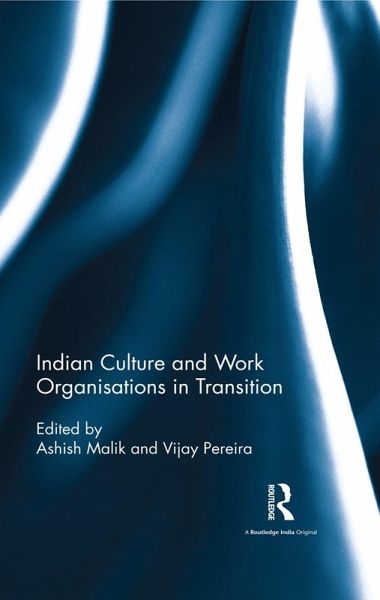
Indian Culture and Work Organisations in Transition (eBook, ePUB)
Versandkostenfrei!
Sofort per Download lieferbar
41,95 €
inkl. MwSt.
Weitere Ausgaben:

PAYBACK Punkte
21 °P sammeln!
This book analyses key theoretical influences on Indian culture in a business context. It shows the interactions between indigenous culture and workplace ethics which is increasingly being populated by multinational corporations. It discusses how the Indian workplace has evolved over time as well as retained some managerial practices dating back to the classical traditions of ancient India. It further demonstrates the changes brought about by globalisation, especially through information technology and business process outsourcing industries.This volume will be useful to the scholars and resea...
This book analyses key theoretical influences on Indian culture in a business context. It shows the interactions between indigenous culture and workplace ethics which is increasingly being populated by multinational corporations. It discusses how the Indian workplace has evolved over time as well as retained some managerial practices dating back to the classical traditions of ancient India. It further demonstrates the changes brought about by globalisation, especially through information technology and business process outsourcing industries.
This volume will be useful to the scholars and researchers of business and management studies, cultural studies, Asian studies as well as human resource (HR) professionals.
This volume will be useful to the scholars and researchers of business and management studies, cultural studies, Asian studies as well as human resource (HR) professionals.
Dieser Download kann aus rechtlichen Gründen nur mit Rechnungsadresse in A, B, BG, CY, CZ, D, DK, EW, E, FIN, F, GR, HR, H, IRL, I, LT, L, LR, M, NL, PL, P, R, S, SLO, SK ausgeliefert werden.













